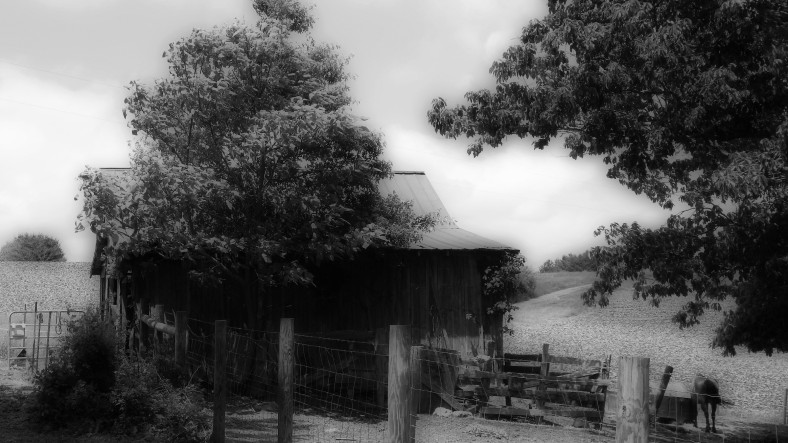


229













It’s the same, every night. I reach for the dream, and I’m grabby-fingered, grievous.
The dream– no, she — is my beautiful. The woman, alone, in front of a barn, tossing scratch to the chickens. She wears a faded bluey sundress, and it is judiciously short, judicious sassy, cut just above the knees, threadbare and very old. It is 1960’s Flower-Power aphrodisia. She doesn’t care. She loves who she is, and I’m a bystander. I see her from profile: the tilt of her hips, the slow current of her arms, the equid arch of neck. Her hair is long, and it flows like a fire beside a curved river. This is her, and this is her’s.
The light captures every grain of the chicken scratch, effervescent dust, as it drifts to the dirt. Even in dreams, everything is bound by gravity. The sun falls below the hills, bloody and huge, and she is cast in it, a form too pure to be possessed. Her dress becomes invisible and she is a body radiant.
She turns to me and turns from me, and I understand. And I grieve.

Flat boxes of fiveses and sixeses
minuteses of sleep
wrapped with gray burlap readies to tear
bound by loopy stringses

We stare at the lines, divided,
you and I stark and misguided,
worn dull by day’s exhausted breath
we move on by hope of certain rest;
by day and by step, with faith our bequest
and by trust, and what it will cost us.

Lilac leaves are the surest sign that spring has stopped teasing. Although the flowers rarely last more than a week here, the leaves possess their own silky beauty. I’ve photographed them many times over the years, and they always draw me back for more.


You line up your crayons according to the shades of the sky. Red and orange, of course, but before them, black and gray. You’ve worn those colors down to smudges of wax on the tablecloth. Is that what you see, more darkness than light? You won’t say. There are others, of course, but the paper peeling is less with the bright colors. There is harlequin green and cornflower blue, and those gaudy pinks I used to tease you about, the ones that matched your old summer blouses. You never use the quiet colors, not to blend, not to soften those coarse, bleeding shades. Should I worry? Every morning you line up the same twenty-two crayons, so do you expect to use them all sometime? You haven’t yet, not even frivolously. Am I to blame for replacing them when you’re finished? You won’t say.

They call me Balazar. I do not know why. I am old. Irrefutably old. And oh, how the years have poured through me. I have plucked the flesh of the immortals, scarred the tongues of those who speak my name, plundered their bones. I have wept for the stains I leave upon their torn breasts, but my tears are not sincere. I am not cruel. My work is fast, my appetite fierce. I watch them. They do not see.
They call me Balazar. I do not know why.